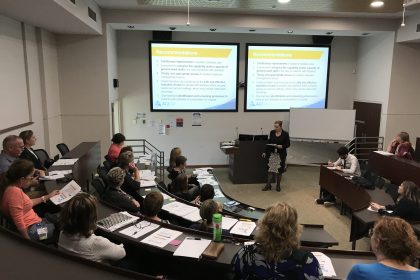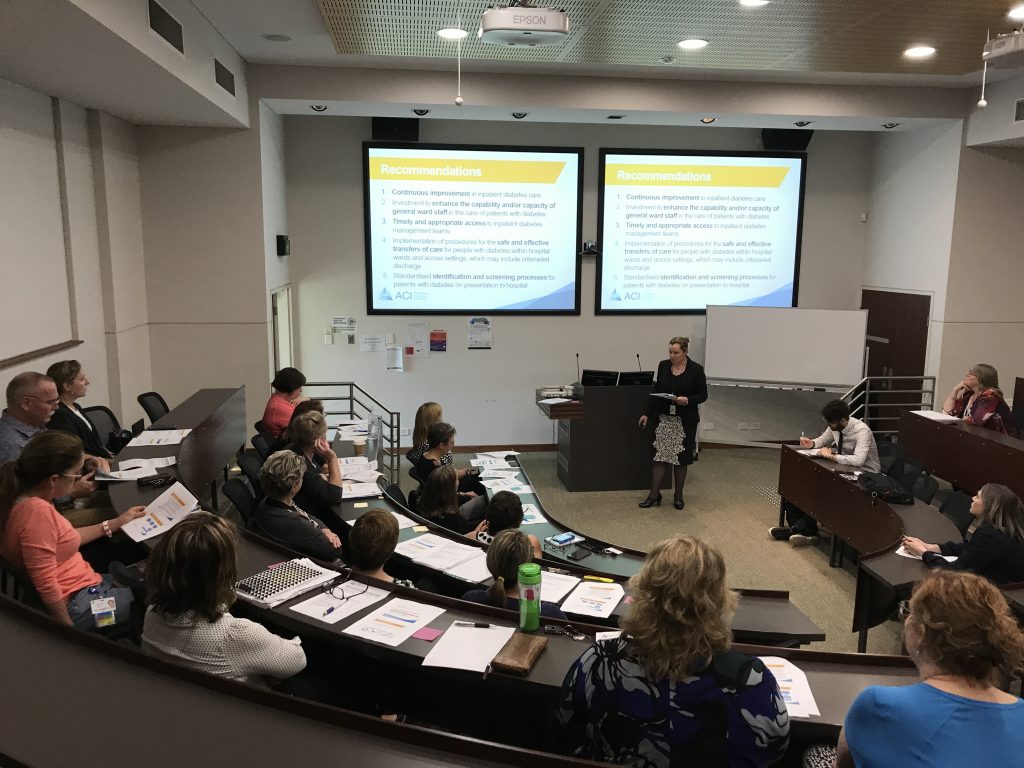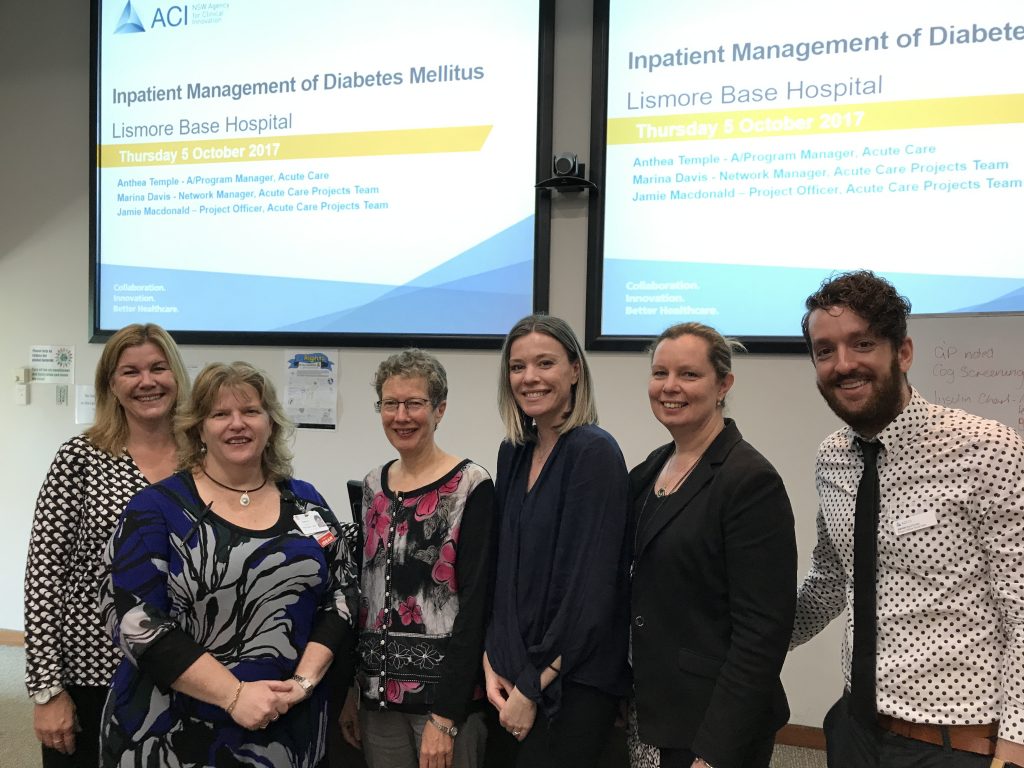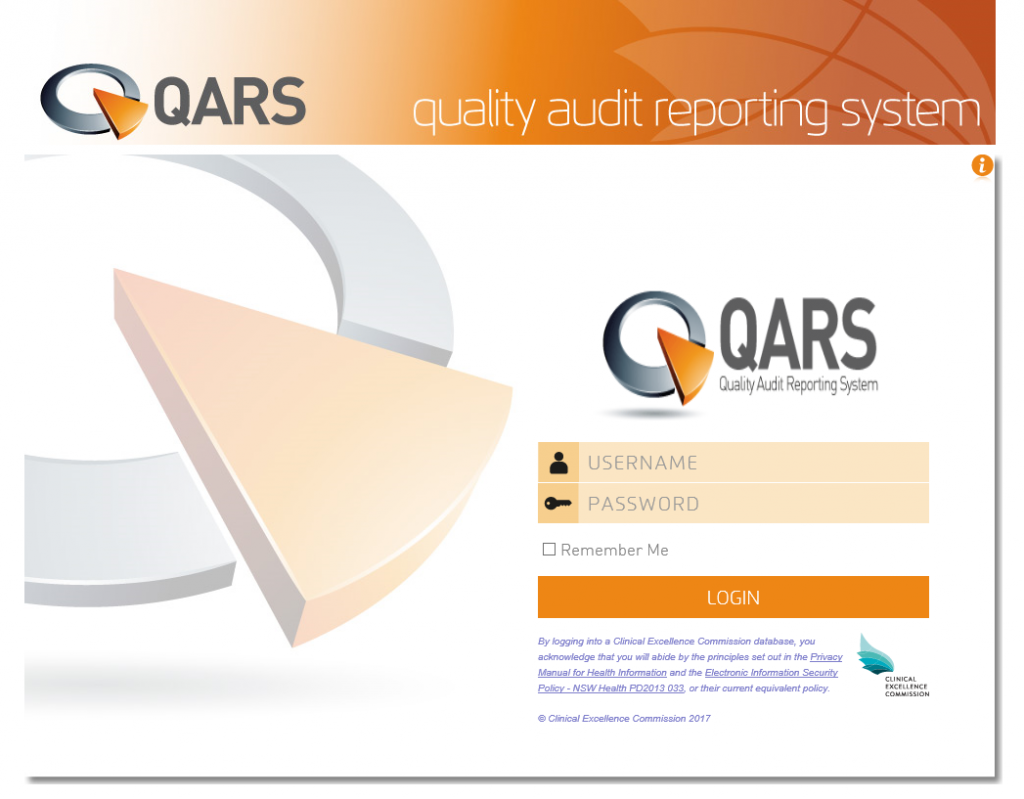
Audit Results are in for Lismore Base
Lismore Base Hospital was recently audited on the Inpatient Management of Diabetes Mellitus (IMDM). The Agency for Clinical Innovation (ACI) performed the audit which captured data from admissions from January 2016 – August 2017.
IMDM is one of the clinical initiatives underway as part of Leading Better Value Care (LBVC) and is a key recommendation area of the NSW Diabetes Taskforce.
On Thursday 5th October members of the Acute Care Project Team, ACI conducted an audit feedback session for staff. The objectives of the session were to provide an overview of IMDM as a key LBVC initiative, to present key findings of the Lismore Base Hospital audit and to identify opportunities to improve inpatient diabetes care.
Positive key findings of the audit included:
- GP regularly noted
- Cognitive screening completed
- Insulin charting
- Identification of Aboriginal and/or Torres Strait Islander patients
- High number of Blood Glucose Levels (BGLs) in 24hrs
- Renal eGFR Identified
- Documentation of Diabetes
- BGLs Identified
- Information provided to GPs
- eMR within the community
Areas of improvement identified:
- eMR
- Signing self-administered documentation
- Recording BMI
- Acting on hypoglycemic episodes
- Documentation of last meal
- Documentation of smoking status
- 48hr follow-up
- High Risk Foot Service referral
- Reaction to one-off hyperglycemic episode
- hyperglycemia in general
The NSW Diabetes Taskforce Key Recommendations are:
- Continuous improvement in inpatient diabetes care
- Investment to enhance the capability and/or capacity of general ward staff in the care of patients with diabetes
- Timely and appropriate access to inpatient diabetes management teams
- Implementation of procedures for the safe and effective transfer of care for people with diabetes within hospital wards and across settings, which may include criteria-led discharge
- Standardised identification and screening processes for patients with diabetes on presentation to hospital
Anthea Temple, A/Program Manager, Acute Care, ACI, states that the agency is able to provide as much support as the Local Health District requires. The offer of support may include audit tools, capability processes, online education, technological enhancements, and assistance with Patient Reported Measurement (PRMs). All support is patient-focused.
Lismore Base Hospital is the 3rd site to be audited, across NSW, using the CEC QARS tool as part of a pilot program.
- Audit Performed using online QARS tool (CEC) – 4 auditors (2 x NNSWLHD staff; 2 x ACI staff) over 2 days
- N=40 adult admitted patient episodes with primary or secondary diagnosis of diabetes mellitus
- Patient files identified using ICD10 codes* – Patient files reviewed for subcutaneous insulin use
- Admission dates ranged from 3 January 2016 – 26 August 2017
In Hospital
The ACI are developing a Decision Support App to be available state wide, for smartphones. The app provides easy access to insulin delivery for Clinicians (in particular JMO’s) providing care to people with diabetes in hospital.
In addition to the app, are 3 e-learning modules covering “Insulin, the Basics”, “Management of Hypoglycaemia” and “Safely Prescribing and Administering Insulin”. Q-Stream is rolled out to learners that have used the App or completed the e-learning module/s, they are a series of questions sent to smartphones to reinforce learning.
These capability building tools will be available by the end of the year.
Care for diabetes often sits outside of the hospital admission for diabetes which highlights the need for general staff to have a better understanding of care.
In the Community
The bulk of care for people with diabetes occurs in their homes, in primary care and through other community based services. The 2 main areas of focus for the Diabetes Taskforce within this sector will be High Risk Foot and Insulin. This approach will involve information gathering, site visits, clinician surveys and consumer consultation, which has already begun.
To view some patient experience stories click here. Learnings from implementation of Integrated care programs and initiatives across NSW ensures integration across phases of the patient journey.
The completion of this diagnostic and solution phases in NNSW for this initiative is expected by the end of the year and we will report findings to the LHD Executive.
What is Happening Locally?
Process mapping is underway for current Inpatient Management of Diabetes Mellitus (IMDM) patient journeys in Richmond, Tweed and Clarence, headed by Rebecca Davey, Program Manager, Leading Better Value Care and IMDM Project Lead, Michelle Culhane assisted by Wendy Livingstone, Diabetes Educator CNC, Community Nursing. Adding to this clinical audit Michelle will be complete patient interviews, staff interviews and will be in contact with staff to arrange these.
LHD Executive has approved funding for additional diabetes educator and Allied Health resources to the tune of 11.59 FTE across the LHD. If you would like to participate or want more information, please contact Michelle on 0439 631 629 or michelle.culhane@ncahs.health.nsw.gov.au.

Pictured From Left: Michelle Culhane, NNSWLHD; Rebecca Davey, NNSWLHD; Wendy Livingstone, NNSWLHD; Marina Davies, ACI; Anthea Temple, ACI; Jamie Macdonald, ACI.
*ICD – 10 Codes
Diagnosis codes (There will be some overlaps between groups):
Type 1 Diabetes (“E10”, “O24.0”)
Type 2 Diabetes (“E11, “O24.1”)
Gestational Diabetes (“O24.4”) and
Diabetes other (“E13”)
Diabetes, acute complication (“E10.1”, “E11.0”, “E11.1”, “E12.0”, “E12.1”, “E13.0”, “E13.1”, “E14.0”, “E14.1”)
Diabetes chronic complication (“E10.2”, “E10.3”, “E10.4”, “E10.5”, E10.6”, E10.7”, “E11.2”, “E11.3”, “E11.4”, “E11.5”, “E11.6”, “E11.7”, “E12.2”, “E12.3”, “E12.4”, “E12.5”, “E12.6”, “E12.7”, “E13.2”, “E13.3”, “E13.4”, “E13.5”, “E13.6”, “E13.7”, “E14.2”, “E14.3”, “E14.4”, “E14.5”, “E14.6”, “E14.7”)
Diabetes, unspecified (“E14”, “O24.3”, “O24.9”)

